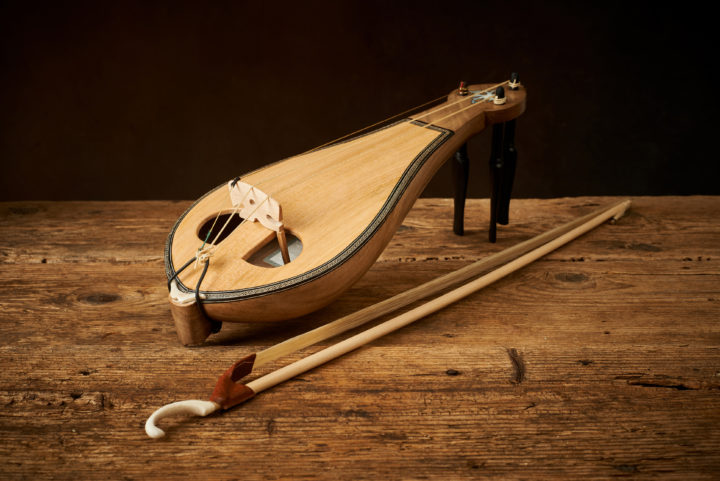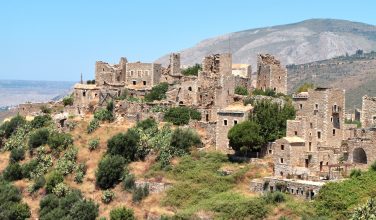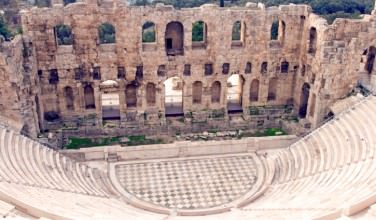Museum of Greek Musical Instruments: A Worthy Stop for Music Lovers
 If you’re looking for a different type of museum in Athens and enjoy music, look no further than the Museum of Greek Musical Instruments in Plaka. The museum and study center opened in 1991 and is devoted to the history of popular Greek music and folk instruments. It features more than 1200 instruments that were donated by Musicologist Roivos Anogianakis from his impressive private collection to the Greek State in 1978. It’s a Public Entity supervised by the Ministry of Culture and housed in an old mansion that was built in 1840.
If you’re looking for a different type of museum in Athens and enjoy music, look no further than the Museum of Greek Musical Instruments in Plaka. The museum and study center opened in 1991 and is devoted to the history of popular Greek music and folk instruments. It features more than 1200 instruments that were donated by Musicologist Roivos Anogianakis from his impressive private collection to the Greek State in 1978. It’s a Public Entity supervised by the Ministry of Culture and housed in an old mansion that was built in 1840.
Visitors can see and hear the influences on Greek music and how Greeks transformed Middle Eastern and European influences into something of their own. The museum traces the development of different styles of island music. Instruments dating from the 18th century including flutes, clarinets, bagpipes, drums, fiddles, violins, mandolins, bells, and water whistles are displayed on the 3 floors of the building. Recordings and headphones are available at every exhibit to hear the sounds that the instruments make. The displays also include costumes of the great masters of Greek music.
The basement level consists of a selection of church and livestock bells, water whistles, wooden clappers, and flutes. The ground floor displays wind instruments like the tsampouna, bagpipes made from goatskin. The first floor is a selection of string instruments such as the bouzouki, the santouri and the Cretan Iyra.
According to the Museum of Greek Musical Instruments website, the objectives of the Museum and Research Center, as mentioned in the founding law are:
1. The collection, conservation and exhibition of folk musical instruments and generally any material useful for research, study and promotion of Greek folk music tradition.
2. The promotion of research and study on ethnomusicology, and as documentation and dissemination of traditional music.
3. The rescue, study, promotion and dissemination of Greek folk and Byzantine music tradition, both in Greek and in the international arena by any appropriate means.
4. Creating special ethnomusicological library and audiovisual library.
The museum offers school tours and educational programs, seminars, lectures, and lessons. Programs are tailored to the age and interests of students. Occasionally, there are courtyard concert performances for visitors to enjoy in the summer. Admission to the museum is free.
Categorized in: About Athens, Greece, Greek Travel Guide
This post was written by Greek Boston
Share this Greek Travel Article:





